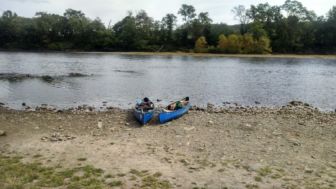The Outdoor Town Toolkit lays out steps along a pathway to help make your town a great place to live, visit, and explore the outdoors. It is intended to be an entry-level website for use by self-motivated communities. It will encourage outdoor and nature-based community development by providing easy to access educational content, inspiring case studies, best practices, tools, templates, and links to available resources.
The Outdoor Town Toolkit is a project of the Pennsylvania Environmental Council (PEC). PEC believes that the economic and environmental sustainability of Pennsylvania’s communities will be enhanced by facilitating and promoting outdoor recreation. Our historic, authentic towns can serve as hubs for outdoor recreation along land and water trails, as well as across distinct and celebrated landscapes. By hiking, fishing, hunting, cycling, and paddling, Pennsylvanians can reconnect with natural resources and develop a personal commitment to stewardship of the Commonwealth’s natural resources.
The Toolkit was developed by PEC based on the research and work of Trish Carothers, an independent consultant, and Cathy McCollom of McCollom Development Strategies, LLC. Patricia “Trish” Carothers is an outdoor recreation enthusiast, conservationist and independent consultant. She developed firsthand experience working with towns to develop their outdoor recreation connection as the Executive Director and Consultant to the Susquehanna Greenway Partnership. The Susquehanna Greenway is an evolving 500-mile interconnected corridor of land and water trails, riverfront parks and accesses, conserved areas, and revitalized towns. It is a Pennsylvania designated Water Trail.
Project Advisors
Representatives from state agencies and non-profit organizations that are involved in community development were recruited to serve as Project Advisors. These Advisors were asked to review the existing Toolkit, participate in key person interviews and conference calls, review project findings and recommendations, and provide guidance and feedback on how to improve the Toolkit. Project Advisors were also asked to identify successful towns for case studies and how to best collaborate to deliver technical assistance to towns.
Project Advisors:
Alliance for the Chesapeake Bay – Mary Gattis
Delaware & Lehigh Trail Town Program – Elissa Garofola, Brian Green
Mon River Town Program, GAP Trail Towns, Redbank Valley Trail Towns – Cathy McCollom and Donna Holdorf
PA Department of Community and Economic Development – Mandy Book
PA Department of Conservation & Natural Resources – Meredith Hill, Diane Kripas
PA Department of Transportation – Roy Gothie
PA Downtown Center, Nature-Based Placemaking – Julie Fitzpatrick
PA State Association of Boroughs – Ed Knittel
The Appalachian Trail Community™ program – Julie Judkins
Susquehanna Gateway Heritage Area – Jonathan Pinkerton
Key Person Interviews
To help improve the Toolkit, key persons interviews were conducted from October 2018 through January 2019 with representatives of organizations engaged in nature-based community development.
The Project Advisors were interviewed, as well as the following key persons:
D & H Trail Towns Program – Lynn Conrad
Lackawanna Heritage Trail – Owen Worozbyt
National Park Service – Jackie Kramer
Schuylkill Heritage Towns and Tours – Bob Folwell, Julie Hurle
Susquehanna Greenway River Towns Program – Tali MacArthur, Alice Trowbridge
Purpose of Key Person Interviews:
- To create an up to date inventory of Trail/River/Canal/Creek “Towns” and Nature-Based Places in Pennsylvania that includes a brief description of the program’s scope of activities and elements, notable achievements, and future plans for the program.
- To identify the critical success factors that help towns to improve their nature-based activity and economy.
- To identify best practices, tools and templates that should be considered for inclusion in the Towns and Trails Toolkit.
- To seek collaboration for sharing tools and ideas on nature-based placemaking and the Towns and Trails Toolkit.
- To identify towns that have success stories to share in case studies.



